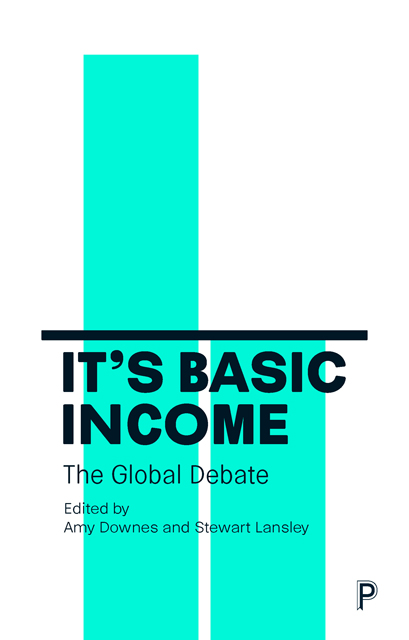29 - For us all: redesigning social security for the 2020s
Published online by Cambridge University Press: 11 April 2023
Summary
‘In the UK a UBI becomes an affordable proposition when it is thought of not as a vast new spending programme, but as a process for integrating and rationalising existing entitlements that are already of broadly similar generosity.’
The debate on universal basic income (UBI) may be global, but concrete proposals for reform must be tied to local circumstances. In the UK, the conditions are right for the introduction of a modest basic income instead of tax allowances, set below a subsistence level. But introducing a full UBI, to replace most means-tested benefits, would either be unaffordable or would bring no extra help to low income households.
When you look at the UK’s tax and benefit systems together, the country has a broadly flat-rate regime for supporting household living standards which helps rich and poor alike. People with low incomes mainly receive means-tested benefits, while middle- to high-income households mainly receive tax-free allowances. But the total level of support is much the same. For example, by 2020, the tax allowances that exempt the first portion of earnings from tax will be worth £68 per week, compared to £73 per week for the basic out-of-work benefit.
So should politicians seek to merge the two systems to create a single flat-rate payment: a British version of universal basic income? The idea of a UBI is that every adult and child should receive a single flat-rate subsistence payment from the government, in place of both tax-free allowances and meanstested benefits. The payment would then be gradually offset by taxation, using a single marginal rate of withdrawal. In the UK a UBI becomes an affordable proposition when it is thought of not as a vast new spending programme, but as a process for integrating and rationalising existing entitlements that are already of broadly similar generosity. The task would be to combine the main tax allowances and benefits in a way that was broadly revenue neutral, since significant increases in tax rates would be unlikely to attract public support (and even if they did, extra spending on public services would be a higher priority).
The case is unproven for a fully-fledged UBI, which replaces most means-tested benefits and tax allowances.
- Type
- Chapter
- Information
- It's Basic IncomeThe Global Debate, pp. 155 - 158Publisher: Bristol University PressPrint publication year: 2018



